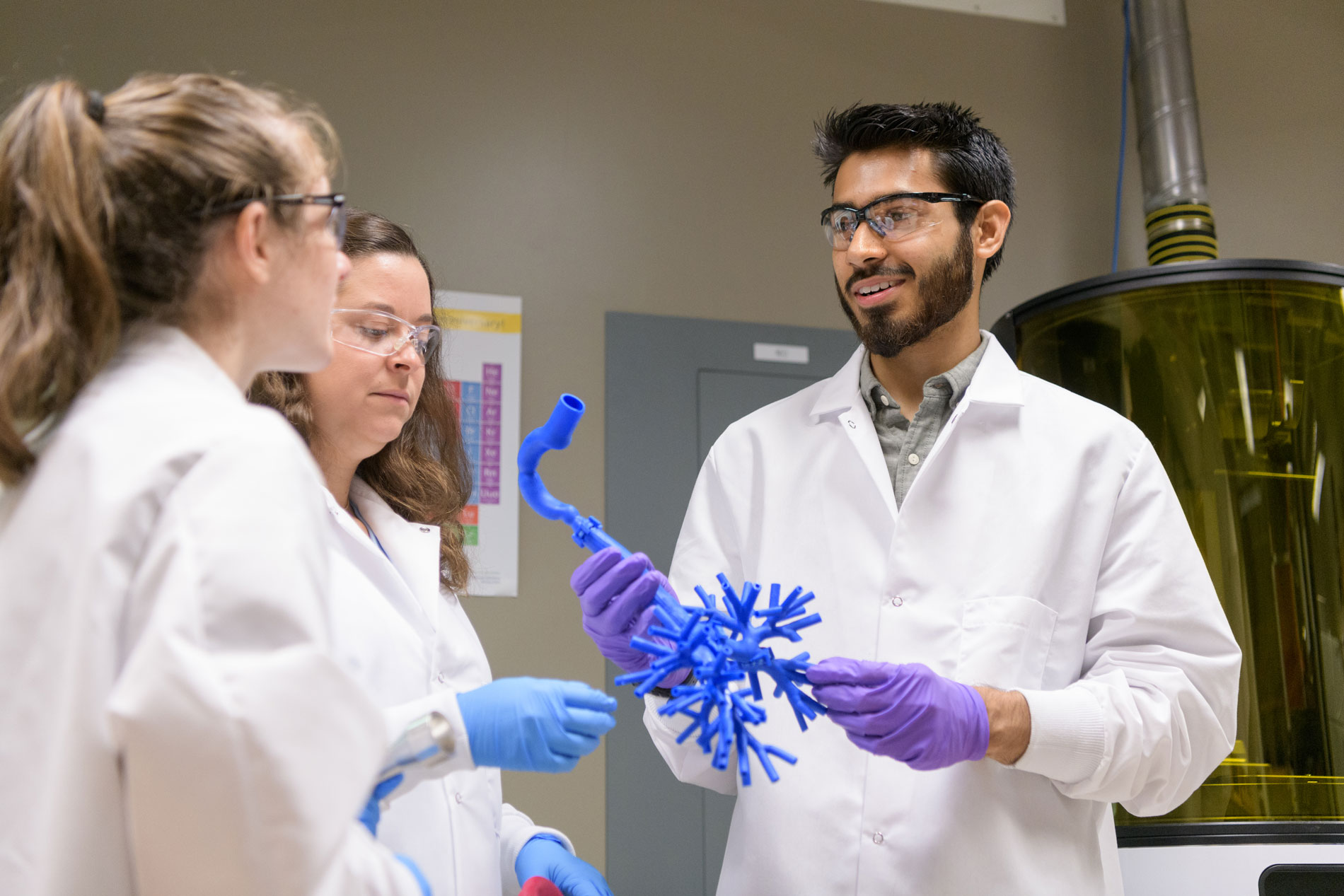
Prospective Undergraduate Students
Why Chemical Engineering?
Chemical engineers study the physical, chemical, and biological transformations of matter that are the basis for making useful products. With its emphasis on problem solving skills, quantitative analysis and teamwork, a chemical engineering education provides an excellent foundation for a technical career as well as preparation to pursue medicine, law, business, consulting and management. Graduates of our program are hired by a broad array of employers, including companies in the energy, biotechnology, semiconductor, management, consulting, and pharmaceutical industries, in addition to a variety of small start-up companies and the traditional chemical process industry.
Top-Ranked Program
U.S. News and World Report consistently ranks UD’s chemical engineering program among the top ten in the nation. We cultivate graduates who actively seek to provide technical, educational, public sector, and business leadership in a rapidly changing, increasingly technological, global society and who recognize their professional responsibility toward the betterment of our community. Our faculty maintain an environment that enables students to identify and pursue their personal and professional goals within an innovative educational program that is rigorous and challenging as well as flexible and supportive.
Career Paths Include
Chemical Engineer
Nuclear Engineer
Process Engineer
Research Associate
Simulation Engineer
Software Developer
Bachelor of Chemical Engineering
Program Educational Goals
Graduates of the Chemical Engineering (BCHE) program will be able to:
- Apply mathematics, science, and engineering principles to solve chemical engineering problems.
- Apply engineering design principles to solve chemical engineering problems considering public health, safety, and cultural, social, environmental, and economic factors.
- Communicate effectively with a range of audiences.
- Recognize ethical and professional responsibilities in engineering situations.
- Function effectively on a team as a member and as a team leader.
- Develop and conduct appropriate experimentation and modeling, analyze and interpret data, and use engineering judgment to reach conclusions from the results.
- Acquire and apply new knowledge to solve chemical engineering problems.
FAQs
What is the average class size for Chemical and Biomolecular Engineering courses during and after the Freshman year?
During Freshmen year, students can expect lecture style class sizes of 50 to 150 students per class. As the students progress through the program, class sizes are divided into smaller sections ranging from 30 to 40 students per class.
Do you recommend a Chemical and Biomolecular Engineering student bring his or her own computer?
The Chemical and Biomolecular Engineering department does not require any particular type of computer, operating system, memory, or software. A PC or a Mac will be fine. Our labs generally use PC software and students are not required to purchase any. Mac can be configured to emulate a PC. Please also visit the University’s IT website for additional computer purchasing advice.
Is tutoring available for students who are struggling in courses?
The Office of Academic Enrichment at UD is committed to helping students address academic challenges through tutoring, workshops, and classes. Within the department, every Chemical and Biomolecular Engineering course has a teaching assistant whose primary duty is to help students. Faculty encourage students to seek assistance from the professor for questions out of class.
What AP scores are you accepting for AP Chemistry? AP Physics? AP Calculus?
The Chemical and Biomolecular Engineering department does not accept AP Chemistry credits to replace our General Chemistry course work. AP Calculus AB and BC as well as Physics C1 and C2 are accepted for our foundation courses. For a detailed AP listing visit: http://www.udel.edu/admissions/pdf/apcredit.pdf
What percent of your students go on to graduate school?
On average, about 25% of our graduating seniors go on to graduate schools.
What are representative salary offers for B.S. chemical engineers?
Visit the career outcomes page for the most up-to-date information.
